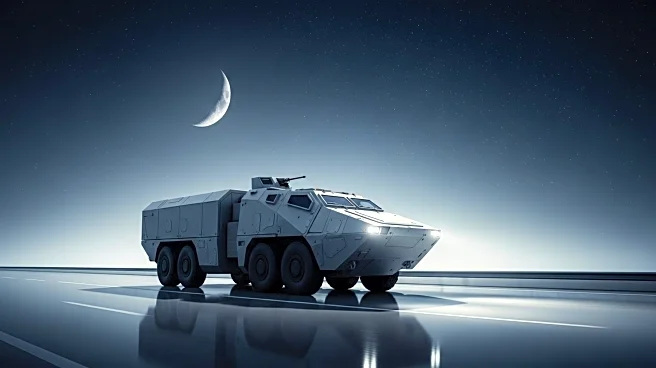What's Happening?
Brig. Gen. Fabrice Feola, in charge of France's military transport, highlighted ongoing bureaucratic challenges in deploying troops and equipment to NATO's eastern flank amid the Ukraine conflict. Current procedures for military convoys crossing European borders take significantly longer than the EU's target of five days. The EU plans to address these barriers with new regulations. The increased movement of military equipment across Europe since Russia's invasion of Ukraine has emphasized the need for efficient rail transport. France has organized numerous military trains to support deployments in Romania and Poland.
Why It's Important?
The delays in military mobility pose a strategic challenge for NATO, especially in the context of potential large-scale deployments in Eastern Europe. Efficient transport of troops and equipment is crucial for rapid response capabilities. The bureaucratic hurdles could hinder NATO's ability to project power and support allies in the region. Addressing these issues is vital for maintaining the alliance's readiness and deterrence posture. The situation also highlights the need for improved infrastructure and streamlined procedures to support military logistics across Europe.
What's Next?
The EU is expected to introduce new military mobility rules to simplify cross-border procedures and identify transport corridors capable of handling military convoys. France is advocating for these changes to ensure rapid deployment capabilities. The establishment of a coordinating authority for military mobility governance in Europe is also being considered. These efforts aim to enhance NATO's operational readiness and ensure seamless logistics support for future deployments.









